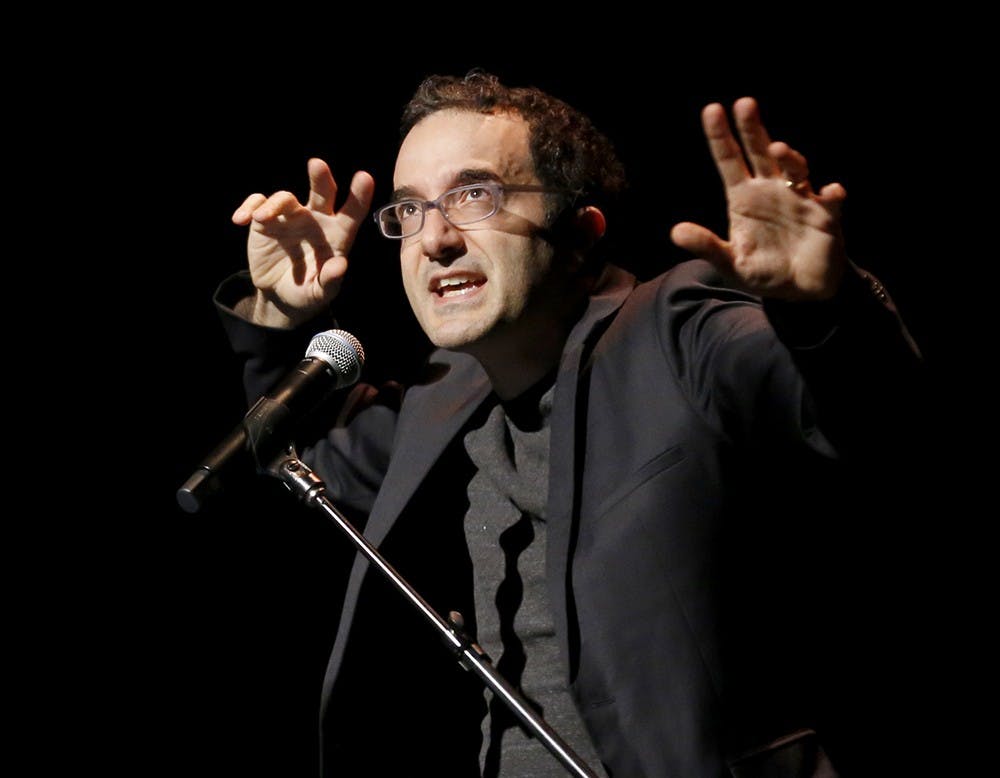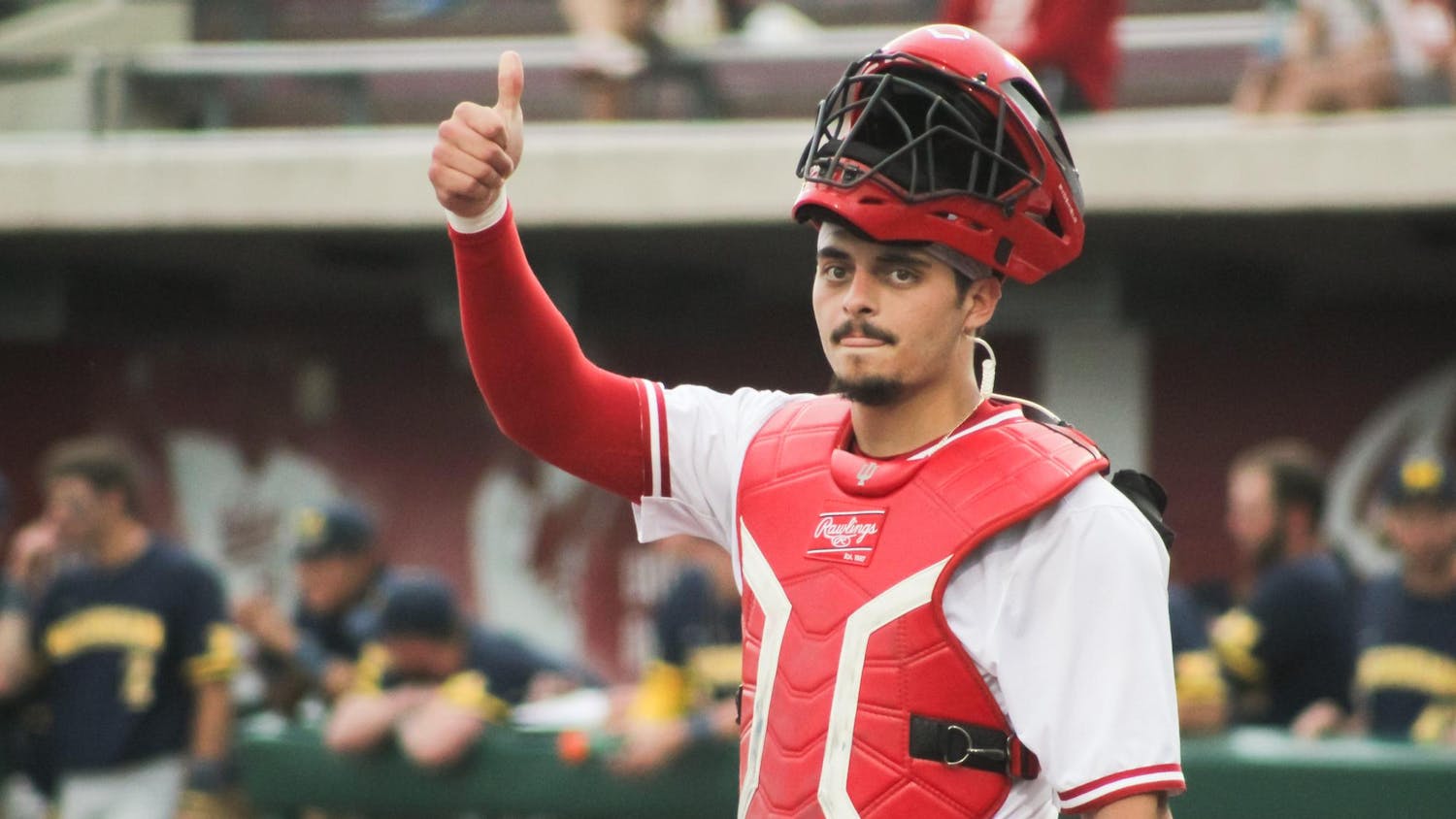Cue a recording of upset stomachs.
When you have big ideas or you want to change the world it’s sometimes hard to figure out which way to go, Jad Abumrad told audience members Monday.
“No one talks about the way that feels, the crappy, queasy space we all have to swim through when you don’t know what you’re doing,” Abumrad said.
Using audio and visuals, Abumrad, founder and host of Radiolab, spoke at the Buskirk-Chumley Theater on why this “gut churn” is essential to the creative process.
After studying creative writing and music composition at Oberlin College, Abumrad created Radiolab in 2002. Radiolab is a public radio show that reaches more than one million people each week.
Each episode of Radiolab takes a specific topic and looks deeper into it using storytelling and music.
Cue ominous music from Richard Wagner’s The Ring Cycle.
Abumrad said he made a deal with himself that every third story he ends up in what his team calls the German Forest.
“This is a state, again just thinking about your body, it’s full on fight or flight, gastric acid coming out of your eyeballs,” Abumrad said.
Abumrad said spending time in this place filled with nerves and uncertainty can feel like the worst moment of his life. Eventually, he learns to embrace it, and the time feeling this way can lead to the best work.
It’s important to have moments of your worst fear before you can experience the best, Abumrad said.
Cue space music.
Abumrad shared a moment from when he and his co-host, Robert Krulwich, spoke in Seattle. Standing on stage ready to talk, Abumrad goes to his laptop to start the presentation they had prepared.
However, his laptop was dead. Abumrad and Krulwich stood on stage together, not knowing what to do. In this moment, Abumrad said he was most grateful to have Krulwich by his side.
“Maybe the single best thing I could say to you guys about navigating periods of doubt is just to do it with someone next to you,” Abumrad said.
Cue Ira Glass, public radio personality, recording.
Abumrad compared the gut churn to Glass’s idea of the gap. Glass said the gap is an area where creative people tend to get stuck. It’s a time when they go back and forth between having big ideas and knowing that they are not very good.
Spending nearly seven years in this gap, Abumrad said he still experiences this feeling. However, the feeling of negativity thrusts him forward to work harder and come up with better ideas.
To show how to get out of this gap, Abumrad used two different examples: chasing the antelope and following the odds.
Abumrad cited a This American Life episode entitled “Running After Antelope” in which a reporter wanted to see if humans run on two feet because they can outrun game. The reporter chased the antelope for 12 years.
Like this reporter, it’s important to let the question consume you and put your entire mind in it, Abumrad said.
Sharing an interview he had with poker player Annie Duke, Abumrad said he likes to know the odds of success or failure for a story. Then he is able to overcome feelings of doubt and nervousness.
This feeling of living in the gap resonated with some members of the audience.
Brian Maxwell, IU alumnus, said it was interesting to hear Abumrad talk about his early career.
“It was interesting to hear that someone I’ve looked up to since I was 16 also had that uncomfortable middle-school-esque experience,” Maxwell said.
When trying to find voice, Abumrad said it’s easy to feel a giant emptiness. However, it’s fundamental to the creative process to sit in that emptiness and find authenticity.






